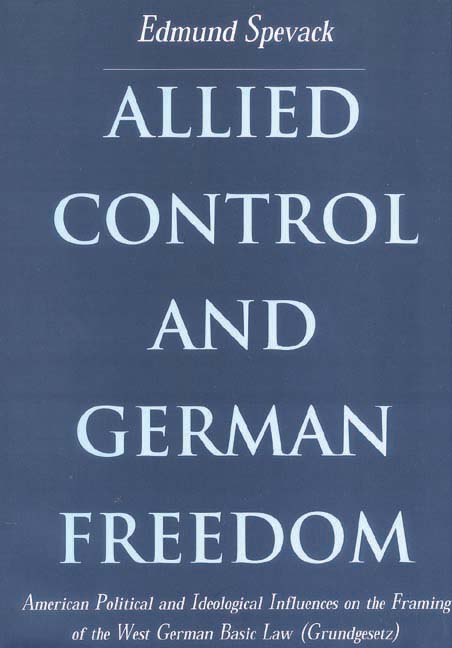Beschreibung
Although there is a virtual consensus among historians,
political scientists, and legal scholars that the West
German Basic Law (Grundgesetz) has been one of the great
successes of recent European constitutional history,
providing many decades of stability and the rule of law, a
public myth, in effect ever since 1949, holds that it was a
totally indigenous German achievement. Although attention
has been paid to the overall role of the Allies in Germany
between the end of World War II in 1945 and the ratification
of the Basic Law in 1949, the present study is the first
book-length attempt to describe and evaluate the specific
political and ideological influences, direct and indirect,
of the United States on the origins, development, and
implementation of the Basic Law. It presents and analyzes
American and German policies and personalities, parties and
programs, and their interplay in the intriguing and subtle
process of constitution-making.
Edmund Spevack was born and brought up in
Germany and received his B. A. from Harvard and his M. A.
and Ph. D. from Johns Hopkins University. He taught at
Harvard and the University of Stuttgart and was the
recipient of grants from the German Academic Exchange
Service, the Volkswagen Foundation, and the Alexander von
Humboldt Foundation. The author of Charles Follen’s
Search for Nationality and Freedom: Germany and America,
1796 – 1840 (Harvard University Press, 1997) and
numerous articles on modern German history and
German-American relations, he was from 1997 to 1999 Research
Fellow at the German Historical Institute in Washington,
D. C. After a long illness he died in July 2001 just before
the publication of this work.


